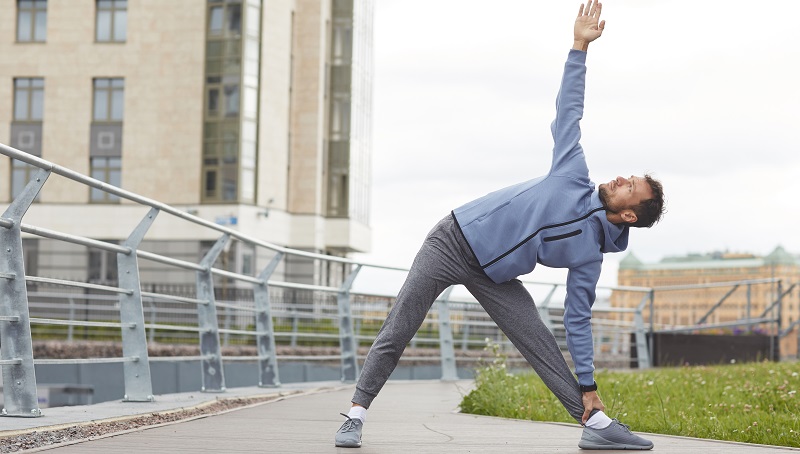Study finds exercise improves chances of beating Covid-19
The past year of Covid-19 has been a ‘wake-up call reminding us of the importance of living a healthy lifestyle. From healthy eating to maintaining healthy body weight, we’ve learned that good health matters in fighting off infectious diseases.
Now a new observational study published in the British Journal of Sports Medicine has highlighted the importance of one other vital part of the puzzle to outsmarting coronavirus – regular exercise. This study found that individuals diagnosed with Covid-19 and who were physically active had a reduced risk of hospitalization, intensive care unit (ICU) admissions, and death. Individuals, who had been leading more of a sedentary life, did not fare as well during the pandemic as those who had exercised regularly. In fact, even after including other strong variables such as people who smoked and were obese, inactivity was still strongly associated with higher odds of hospitalization.
Study details
Researchers at Kaiser Permanente Southern California looked at data of close to 50,000 patients with a median age of 47 who had been diagnosed with the virus between January and October 2020. Out of this number of patients, only about 6% were consistently active, 14% were consistently inactive, and the remainders were inconsistently active.
The healthcare system at Kaiser Permanente was ideal for this study because, since 2009, all patients of this system have been asked about their frequency of exercise as part of a ‘vital sign’ during patient visits. Other data gathered by this research was all patient’s known risk factors for severe Covid, including their age, smoking habits, weight, and any history of cancer, diabetes, organ transplants, kidney problems, and other serious, underlying health conditions.
Results showed consistently inactive patients were twice as likely to be hospitalized, 1.7 times more likely to be admitted to the ICU, and almost 2.5 times more likely to die than patients who were consistently active. Even patients who were inconsistently active had a lower risk of severe Covid-19 than patients who were consistently inactive. This demonstrated that even some activity is better than none at all.
It needs to be pointed out that this study does not prove that exercise causes severe Covid-19 risks to decrease. Rather the implication is that individuals who regularly exercise are less prone to becoming deathly ill from the virus.
Why exercise may help protect against Covid-19 complications
The ongoing Covid-19 pandemic has raised lots of questions regarding exercises’ role in protecting from infection by boosting immunity. Early on, researchers and medical professionals were interested in finding out if exercise was one method for thwarting severe cases of the disease.
When gyms were shut down last spring limiting access for many to exercise, there were concerns of how this would affect the rate of Covid cases. Factor in also, that besides closing places to work out, there were the negative effects of social isolation and confinement on immunity. When our body is under profound stress such as being the isolated and the possible risk of exposure to infectious diseases, glucocorticoids such as cortisol, rise inhibiting critical functions of our immune system. This results in our T-cells (part of our immune system) being unable to fight off and respond as well to infectious diseases like Covid-19. When immune cells are negatively impacted, it’s much easier for pathogens to gain a foothold in our body once we are infected.
As we now know, caseloads did indeed increase substantially, especially during last fall and winter. Remaining physically active is necessary for having a profound impact on the normal functioning of our immune system. Research has also shown that when we exercise, an antioxidant enzyme may help lessen the risk of acute respiratory distress syndrome (ARDS). ARDS is a condition that occurs when the lungs become so inflamed they become stiff and swell, leading to fluid buildup and deprivation of oxygen. People who had severe cases of Covid-19 and who had not regularly exercise were more likely to develop ARDS as a complication of the disease.
What is the recommendation for exercise to improve immunity?
The CDC recommends 150 minutes a week of moderate-intensity aerobic exercises such as brisk walking or 75 minutes a week of vigorous-intensity aerobic exercise such as jogging or running, in addition to muscle-strengthening activities working for all muscle groups two or more days a week.
If it’s been a while since doing any form of regular physical activity, check with your doctor first asking how to get started. The general recommendation is to start slowly while gradually increasing the duration, number of days a week, and intensity spent exercising. The important thing is to make exercise as regular as taking a daily shower or brushing your teeth.

